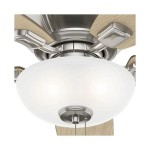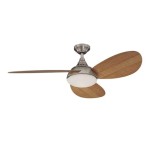Lights On: Essential Aspects of Ceiling Designs
Ceiling designs are a crucial element in interior decoration, transforming a room's ambiance and functionality. Lights on ceilings play a significant role in enhancing the aesthetics and practicality of any space. Here are some essential aspects to consider when designing and selecting ceiling lights:
Types of Ceiling Lights
There are various types of ceiling lights available, each catering to specific lighting needs and design preferences:
- Pendant Lights: Single or multiple lights suspended from the ceiling by cords or chains, often used over dining tables or kitchen islands.
- Chandeliers: Ornate, multi-armed fixtures with multiple lights, providing ambient and decorative lighting in large spaces like living rooms or entryways.
- Recessed Lighting: Lights mounted flush with the ceiling, creating a clean and modern look. They provide general illumination and can be used in various room types.
- Surface-Mounted Lighting: Lights affixed directly to the ceiling surface, often featuring unique designs. They create focal points and provide ambient or accent lighting.
- Track Lighting: Adjustable lights mounted on a track system, allowing for flexibility in positioning and direction of light.
Light Distribution and Brightness
The light distribution of ceiling lights influences the overall ambiance of a room. Choose lights that provide:
- Ambient Lighting: General illumination that evenly distributes light throughout the room.
- Task Lighting: Focused light for specific activities, such as reading or cooking.
- Accent Lighting: Highlights specific areas, objects, or architectural features.
The brightness of the lights is measured in lumens. Consider the size and functionality of the room when selecting the appropriate brightness level.
Style and Finish
Ceiling lights should complement the overall design scheme of the room. Choose lights that match the style of the furniture, decor, and architectural features:
- Modern: Clean lines, geometric shapes, and metallic finishes
- Traditional: Ornate designs, chandeliers, and classic finishes
- Industrial: Exposed bulbs, metal accents, and rustic textures
- Coastal: Whitewashed finishes, natural materials, and nautical elements
- Farmhouse: Galvanized metal, barn wood, and rustic fixtures
Placement and Height
The placement and height of ceiling lights play a vital role in achieving the desired lighting effect:
- Over Tables: Pendant lights should be suspended 28-34 inches above the table surface for optimal task lighting.
- Chandeliers: Hang chandeliers approximately 3-4 feet above the floor for general illumination.
- Recessed Lighting: Place recessed lights evenly spaced and recessed into the ceiling by 2-3 inches.
- Surface-Mounted Lighting: Mount these lights flush with the ceiling or at a slight angle for ambient or accent lighting.
Dimmability and Smart Features
Dimmable lights allow you to adjust the brightness level to create different moods and suit various activities. Smart lights offer additional features, such as remote control, voice activation, and scheduling, enhancing convenience and energy efficiency.
Conclusion
Ceiling lights are a versatile and essential element of interior design. By considering the type, distribution, brightness, style, placement, and technological features of ceiling lights, you can create a lighting scheme that transforms your space, enhances its functionality, and reflects your unique style.

A Comprehensive Guide To The Best Ceiling Lights Designs For Your Home

9 Ceiling Light Designs For Home 2024
40 Led Ceiling Lights For Your Home Office

False Ceiling Strip Light Design For Modern Homes

Top 3 Ideas To Light Up Your Ceiling Saint Gobain Gyproc

30 Bedroom Ceiling Lights Ideas To Make Your Room Look Elegant

Ceiling Lights Design For Hall Mabel Lamp Smartway Lighting

False Ceiling Lighting Photos Designs Ideas

Amazing Designs For False Ceilings Ecolight Lights And Luminaries Showroom At Angamaly Ernakulam Kerala

Ceiling Light Design Ideas For Your House
Related Posts








